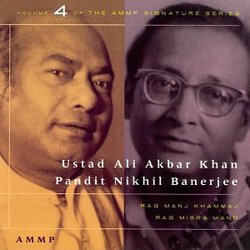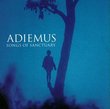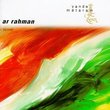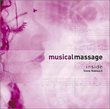| All Artists: Ustad Ali Akbar Khan Title: Vol. 4-Signature Series Members Wishing: 0 Total Copies: 0 Label: Ammp Records Release Date: 8/9/1994 Genres: International Music, Jazz, New Age, Pop Styles: Far East & Asia, Reggae, India & Pakistan, India Number of Discs: 1 SwapaCD Credits: 1 UPC: 723181940520 |
Search - Ustad Ali Akbar Khan :: Vol. 4-Signature Series
 | Ustad Ali Akbar Khan Vol. 4-Signature Series Genres: International Music, Jazz, New Age, Pop
|
Larger Image |
CD DetailsSimilarly Requested CDs
|
CD ReviewsIf these guys interest you then you need this cd Pharoah S. Wail | Inner Space | 04/03/2002 (5 out of 5 stars) "Make that 4 stars. Along with being completely blissful and uplifting, there is a sadness to this cd now. Of Ali Akbar Khan, Nikhil Banerjee, and Mahapurush Misra, only Ali is still alive. Both Nikhil and Mahapurush died tragically young. As evidenced by this recording, the musical connection between Nikhil and Ali was huge. They exchange phrases with such ease and grace, their tones compliment each other perfectly. I'm not sure I could pick which raga peformance I think is better. Nikhil's mini-alap phrases at the beginning of Manj Khammaj are gorgeous, meanwhile there is such a beautiful rhythmic flow, a give-and-take among all three men in Misra Mand that it's impossible to ignore. I know that many people have a passing interest in the music of India... some of you just want a handful of Indian cd's. Whether you just want a few classic recordings, or you have 100+ Indian recordings, this cd will end up being one of your prized musical possessions. All three of these men are/were brilliant musicians and this cd is a highlight in their respective discographies." Best of the best! Indeed! Steve | Bozeman, MT United States | 07/06/2001 (5 out of 5 stars) "I first obtained this recording on vinyl almost 30 years ago after seeing Nikhil Banerjee perform live on three occasions. He is the only performer I have witnessed live to be able to evoke tears in the eyes of his audience. As much as I love the recordings that both Nikhil-ji and his teacher Ali Akbar Khan have recorded separately, I become speechless in trying to describe the beauty of this particular recording, the only jugalbandi, or duet, recording that I know of made by master and disciple. The warmth and affection that these musicians had for each other is evident upon listening to both pieces on this album/CD. This recording also presents the most sublime and rewarding example of duet call and response that I have ever had the pleasure to listen to. This recording gets a rating of 10 out of five, yes, 10 out of 5! It is the best of the best. Enjoy! Footnote: While we can no longer hear Ali Akbar Khan and Nikhil Banerjee perform together live, two superb musicians in the lineage of Khan-sahib and Nikhil-ji, sarodist Rajeev Taranath and sitarist Partha Chatterjee, occasionally perform together. Don't miss any opportunity to hear them either in solo or duet performance." The Best Ken McCormick | 04/03/2002 (5 out of 5 stars) "Simply the best jugalbandi ever recorded. The Vilayat-Bismillah recording of Gujaree Todi and Chaiti (the 1970s EMI, India recording)finishes second in my books. Ustad Ali Akbar Khan's other jugalbandi concerts with other artists available on CDs, in my judgement, does not come anywhere close to this great recording. The reason for this in my opinion is simple enough: Nikhil Banerjee is his only equal in the world of North Indian instrumental music. This is the only jugalbandi in Pandit Nikhil Banerjee's discography. How one wishes that more of the Nikhil Banerjee-Ali Akbar Khan jugalbandi concerts from the 1960s and 1970s could be made available on CD. These two artists constitute the ultimate duet pairing in the realm of Hindusthani instrumental music. If this CD doesn't convince, nothing will!"
|

 Track Listings (2) - Disc #1
Track Listings (2) - Disc #1

